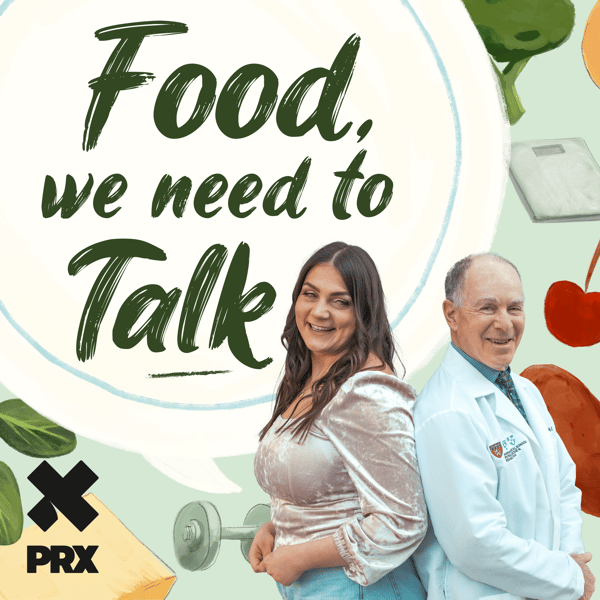Longevity Hacks or Hype? What to Keep, Skip, and Stop Stressing About
Food, We Need To Talk
Juna Gjata
4.8 • 2K Ratings
🗓️ 9 June 2025
⏱️ 6 minutes
🧾️ Download transcript
Summary
In this episode, we continue our conversation with Dr. David Barzilai all about microplastics, longevity supplements, and how to protect your health without spiraling into fear. We break down where microplastics actually come from, what you can do about them, and which changes are worth making. We also dive into hot topics like metformin, resveratrol, and NAD—what the science really says, and what’s still up in the air. If you've ever wondered how far is too far when it comes to optimizing your health, this one's for you.
To hear the rest of this episode, sign up for the Foodie Fam!
For weekly notes on our episodes, sign up for the Food We Need to Talk newsletter!
Check out our book!
Chat with us on IG!
Be friends with Juna on IG and Tiktok!
Learn about your ad choices: dovetail.prx.org/ad-choicesTranscript
Click on a timestamp to play from that location
| 0:00.0 | Welcome back to another episode of the talk. Today we are continuing our conversation with Dr. David Barzolai on longevity. |
| 0:07.6 | And, okay, so first of all, we have so many questions, but I wanted to ask you about microplastics, which we kind of touched on in our full episode. |
| 0:16.9 | So you mentioned that microplastics are a big thing that we have been ignoring for a long time, but are most certainly causing damage to ourselves, and we've been finding them in a lot of places. |
| 0:27.4 | I read that they found like a teaspoon in the brain when people die, a teaspoon of plastic in the brain. |
| 0:32.5 | And like we have like a full credits cards worth of plastic. |
| 0:34.3 | People are picturing like this actual teaspoon. |
| 0:36.7 | The credit card study has been debunked. |
| 0:39.2 | Oh, no. |
| 0:40.5 | Okay. |
| 0:40.8 | That's false. |
| 0:42.1 | But any, I mean, and actually the most dangerous ones are the E&CBNC one, but they don't add up to nearly near that amount. |
| 0:48.5 | Okay, okay. |
| 0:49.4 | But, and so, based on what we see on short-term studies and animal models, it's a cause for concern. |
| 0:56.5 | We don't yet know, but why not minimize it if we can, you know, while we're getting data. |
| 1:01.1 | So where are people getting their microplastics? |
| 1:02.5 | Where are the most common culprits? |
| 1:04.3 | We're actually getting it everywhere, interestingly enough. |
| 1:07.1 | Some of the microplastics literally were getting in the air we breathe. |
| 1:11.2 | So, you know, there are a lot of other things literally were getting in the air we breathe. So, |
| 1:16.0 | you know, there are a lot of other things we're getting in the air we breathe in the particulate matter that's damaging. So I think a good best practice for that is to have a, if you can get one, |
| 1:21.7 | to invest in getting a HEPA filter, which has a certain grade, that's HEPA. It's not one particular company, and I don't endorse |
| 1:29.7 | specific products or services, but that just means that it's rated at a certain high level. |
... |
Please login to see the full transcript.
Disclaimer: The podcast and artwork embedded on this page are from Juna Gjata, and are the property of its owner and not affiliated with or endorsed by Tapesearch.
Generated transcripts are the property of Juna Gjata and are distributed freely under the Fair Use doctrine. Transcripts generated by Tapesearch are not guaranteed to be accurate.
Copyright © Tapesearch 2025.

